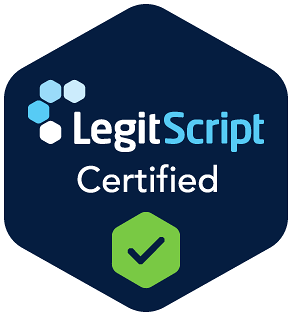Heroin Detox in Las Vegas That’s Safe, Private, and Compassionate
If you’re searching for a way to safely stop using heroin, you’re not alone—and you’re in the right place. BetterChoice Treatment Center offers medically supervised heroin detox in a peaceful, luxury setting where your comfort and safety come first. Our clinical team is available 24/7 to help manage withdrawal symptoms and support your body and mind as you begin to heal.
When you’re ready to detox from heroin, we’re here to walk beside you—without judgment, without shame, and with full medical care.
We Accept All The Major Insurances
Don’t see your insurance provider? Call us for a full list of insurances we accept (725) 299-4777








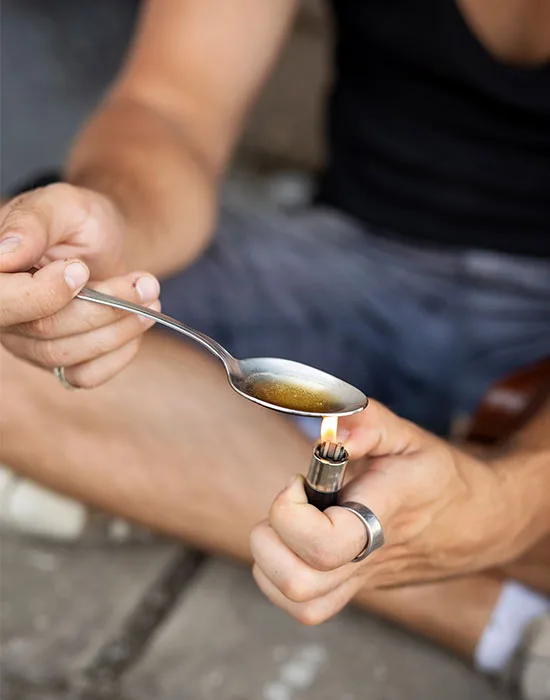
What Is Heroin Addiction?
Heroin addiction is a powerful and often life-threatening condition caused by repeated use of heroin—a fast-acting opioid that alters the brain’s reward system. Once addiction takes hold, stopping becomes extremely difficult without professional help. Heroin affects not just physical health but also emotional stability, relationships, and overall well-being.
At BetterChoice Treatment Center, we provide medically supervised heroin detox designed to help you safely withdraw from heroin while reducing discomfort and risk. Our goal is to give you a safe, supportive space to begin your recovery journey.
Signs of Heroin Addiction
- Using heroin daily or compulsively despite harmful effects
- Strong cravings and loss of control over use
- Needle marks, frequent nosebleeds, or visible weight loss
- Nodding off, slurred speech, or drowsiness
- Withdrawing from friends, family or activities
- Experiencing chills, nausea, or muscle pain when not using
Why Consider Heroin Detoxification At BetterChoice
Detoxing from heroin can be one of the most difficult—but most critical—steps in the recovery journey. At BetterChoice Treatment Center, our medically supervised heroin detox program provides the safe environment and professional care needed to break the cycle of addiction. Here’s why choosing professional detox matters:
Distance Yourself from Triggers
Getting away from familiar environments where heroin use occurs is key to early recovery. Our inpatient detox center offers a safe, distraction-free space that removes daily temptations and negative influences.
Higher Success Rate
Heroin withdrawal symptoms can be intense, including nausea, muscle pain, anxiety, and insomnia. With medical supervision, you’re far more likely to complete detox safely and continue with long-term treatment.
Get Personalized Medical Attention
Our clinical team carefully evaluates your health history to design a detox plan tailored to your needs. You’ll receive round-the-clock monitoring and symptom management to reduce discomfort and medical risks.
Long-term Support System
Detox is just the first step. We provide you with relapse prevention planning, ongoing emotional support, and access to further rehab services—helping you transition from detox to long-term sobriety with confidence.
Holistic Treatment Approach
Healing goes beyond physical detox. Our program includes holistic therapies like yoga, mindfulness, nutrition, and fitness to help restore mental clarity, emotional balance, and physical strength during early recovery.
What's Included In Our Program
At BetterChoice Treatment Center, our heroin detox program combines expert medical care with therapeutic and holistic support to help you start your recovery in the safest, most empowering way possible.

Individual Therapy
During detox, you’ll begin working one-on-one with a licensed therapist to identify emotional triggers, address past trauma, and set the foundation for long-term recovery—all tailored to your personal journey.

Group therapy
Healing happens in community. Group sessions connect you with others going through similar struggles, helping you feel supported, understood, and motivated as you begin the detox process together.

Family Therapy Sessions
Addiction affects the entire family. Our program includes family sessions that repair strained relationships, rebuild communication, and offer education and tools for a stronger support system post-detox.

24/7 Supervision and Care
Heroin withdrawal can be intense and unpredictable. Our medical staff is available around the clock to monitor your health, manage symptoms, and ensure your physical and emotional safety throughout detox.
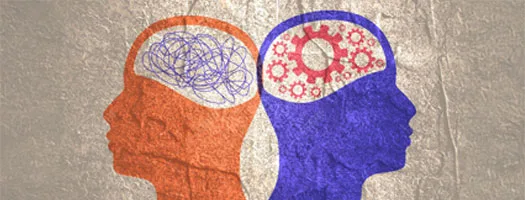
Dual Diagnosis
Many individuals struggling with heroin addiction also face mental health challenges like anxiety, PTSD, or depression. Our dual diagnosis approach treats both conditions together for more effective, lasting recovery.

Lots of Fun Activities
Even in detox, you deserve comfort, peace, and moments of joy. From yoga and meditation to art, fitness, and relaxation spaces, our activities help reduce stress and support overall wellness as you heal.
What Is Heroin Detox?
Detoxing from Heroin: What You Need to Know
Heroin detox is the first and most urgent step toward recovery. During this process, your body clears out heroin and its byproducts while adjusting to life without the drug. Withdrawal symptoms can be intense and overwhelming, which is why professional detox is crucial.
Common heroin withdrawal symptoms include:
- Severe muscle and bone pain
- Nausea, vomiting, and diarrhea
- Insomnia and restless legs
- Anxiety, depression, and irritability
- Intense cravings
- Chills, sweating, and tremors
At BetterChoice, we help manage these symptoms with compassionate care, medication-assisted treatment when appropriate, and round-the-clock clinical supervision.

Why Medical Detox from Heroin Is Essential
Don’t Go Through Heroin Withdrawal Alone
Heroin is one of the most addictive and fast-acting opioids, making withdrawal both physically exhausting and emotionally destabilizing. Trying to detox from heroin without medical help often leads to relapse—sometimes within hours.
Our Licensed Detox Program Includes:
- 24/7 clinical supervision
- Medication-assisted treatment (e.g., Suboxone, buprenorphine)
- IV fluids and nutritional support
- Personalized detox plans based on full assessments
- A seamless transition into inpatient rehab
If you’ve been searching for heroin detox centers near me, we encourage you to choose a facility that prioritizes both safety and dignity—like BetterChoice.
The BetterChoice Detox Experience
Luxury Detox That Treats the Whole You
- 198 Ebb Tide Cir, Las Vegas, NV 89123


Our Las Vegas facility is more than just a detox center—it’s a retreat for physical and emotional renewal. Clients detox in a peaceful setting with upscale amenities, compassionate staff, and personalized care.
Amenities Included
- Nutritious, gourmet served meals
- Private or semi-private rooms
- Jacuzzi-equipped bathrooms
- Yoga, sound bath, and holistic wellness therapy, and massage
- Tropical pool, outdoor gardens, and quiet lounges
- Medical supervision 24/7
We’re more than a detox center—we’re a place to feel safe while you begin your new chapter.
What Happens After Detox?
Detox Clears the Body—Rehab Heals the Mind
After heroin detox, it’s essential to continue your recovery journey with inpatient rehab. While detox clears the substance from your system, rehab addresses the emotional, psychological, and behavioral patterns that led to addiction.
At BetterChoice, you’ll transition directly into a personalized treatment plan that includes:
- Trauma-informed therapy
- Dual diagnosis treatment
- Cognitive Behavioral Therapy (CBT) and DBT
- Relapse prevention training
- Family therapy and support
- Long-term aftercare planning

Meet Our Expert Team

Brian Kaszuba
Doctor/Medical Director

Briana Theocharides
Lead Tech/Operational Manager
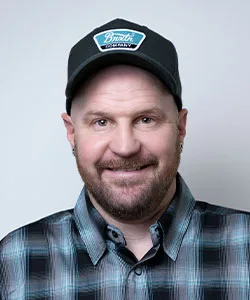
Gregory Lange
BHT

Jim Jobin
Clinical Director/LMFT

Jamie McAller
Mental Health Counselor

Wyconda Hopkins
CADC
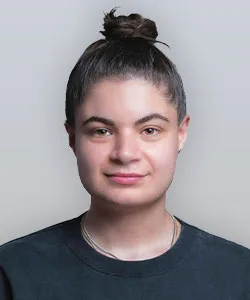
Ani Alvadzhyan
Quality Assurance
Frequently Asked Questions
Is heroin detox dangerous?
Heroin detox is rarely life-threatening on its own, but it can be physically grueling and emotionally distressing. Severe withdrawal symptoms and strong cravings often cause people to relapse quickly without help. At BetterChoice, we provide 24/7 medical supervision and supportive medications to ensure a safer, more manageable detox experience.
How long does heroin detox take?
The acute withdrawal phase typically lasts 5 to 7 days, with symptoms starting within 6–12 hours of the last dose and peaking around 48–72 hours. Some emotional and psychological symptoms, such as depression or cravings, may persist longer and are addressed in continued rehab.
Can I detox from heroin at home?
Detoxing from heroin at home is not recommended. The withdrawal process can be extremely uncomfortable, and the risk of relapse is high. A professional detox center provides medical support, symptom relief, and a structured environment to keep you safe and focused on recovery.
What medications are used in heroin detox?
We may use FDA-approved medications such as buprenorphine (Suboxone) or clonidine to reduce withdrawal symptoms, ease cravings, and stabilize your physical and mental state. Every treatment plan at BetterChoice is personalized based on your needs and medical history.
Will I be able to sleep or eat during detox?
Heroin withdrawal often causes insomnia and appetite loss, especially in the early days. However, at BetterChoice, we provide a calm environment, comfort-focused care, and gourmet served meals to support rest and nourishment as your body stabilizes.
What happens after I complete detox?
After heroin detox, we help clients transition into our inpatient rehab program, where they receive therapy and long-term support. Detox removes the substance, but rehab addresses the root causes of addiction and teaches essential coping strategies to maintain sobriety.
Is heroin detox covered by insurance?
Yes, many insurance providers offer full or partial coverage for heroin detox and inpatient rehab services. Our admissions team can verify your benefits quickly and discreetly to help you get started as soon as possible.
Heroin Use & Addiction Statistics
Approximately 1 million people in the U.S. reported using heroin in the past year.
(Source: NIDA – 2021 National Survey on Drug Use and Health)
About 45% of people who use heroin were previously addicted to prescription opioids.
(Source: NIDA – Research on Prescription Opioid and Heroin Use)
In 2021, nearly 9,000 people died from a heroin-involved overdose in the U.S.
(Source: NIDA – Overdose Death Rates Report)
Begin Your Heroin Detox Today
You Can Do This—And You Don’t Have to Do It Alone
Searching for heroin detox centers near me means you’re already taking a powerful first step. Let us help you take the next.
At BetterChoice Treatment Center, we offer immediate admission, compassionate care, and a treatment team that truly cares about your future.

